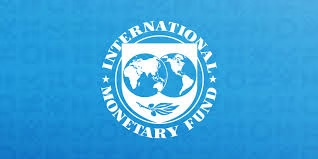The International Monetary Fund (IMF) has recommended that Pakistan remove the finance secretary from the State Bank of Pakistan (SBP) board and amend a law to revoke the federal government’s authority to direct inspections of commercial banks, according to media reports on Tuesday.
The global lender has also urged Islamabad to promptly fill two vacant deputy governor positions at the SBP. The recommendations were outlined in the IMF’s Governance and Corruption Diagnosis Mission report, which appears aimed at enhancing the central bank’s independence, despite the federal government being the SBP’s sole shareholder.
This marks the second attempt in three years to exclude the finance secretary from the SBP board. Currently, the secretary serves as a board member without voting rights, while key monetary decisions—such as setting interest rates and exchange rates—are determined by the SBP’s monetary policy committee.
Finance Minister Muhammad Aurangzeb emphasized on Monday that the government has no role in interest rate decisions, which remain under SBP’s mandate, and that the exchange rate will continue to be market-driven. The rupee appreciated to Rs 282 per dollar on Monday.
Under the IMF’s recommendations, the removal of the vote-less finance secretary would further consolidate SBP’s autonomy. However, sources indicate that the government has not formally accepted the proposal, and discussions are ongoing.
The SBP board currently comprises the governor and eight non-executive directors, with at least one representative from each province. The board oversees the bank’s operations, administration, and management. The IMF has also suggested publishing the reasons for removal of governors, deputy governors, non-executive directors, and monetary policy committee members.
Currently, of the three sanctioned deputy governor positions, only one—Saleem Ullah, overseeing finance, inclusion, and innovation—is filled. Former deputy governor Inayat Husain has been serving in an acting capacity since November 2024, with his dual nationality delaying reappointment. The prime minister has formed a committee to explore legal amendments allowing dual nationals to serve as deputy governors.
The finance ministry had earlier proposed amendments to the SBP Act, including provisions for dual nationals’ appointments, which have been vetted by the law ministry. By law, deputy governors are appointed by the federal government after consulting the finance minister and SBP governor, from a panel of three candidates recommended in order of merit.
Sources indicate that Nadeem Lodhi has been shortlisted for one of the vacant deputy governor posts, but cabinet approval is still pending. The SBP law mandates that vacancies for governors, deputy governors, non-executive directors, and monetary policy committee members be filled within 30 days—a requirement the federal government has repeatedly missed. The IMF recommends ensuring that such positions are never left vacant for prolonged periods.
Additionally, the IMF has proposed amending the Banking Companies Ordinance of 1962 to remove the federal government’s power to instruct the SBP to inspect commercial banks, further reinforcing central bank independence.
Pakistan is currently implementing a $7 billion IMF loan program, with each $1 billion installment contingent on meeting agreed-upon conditions. The loan, approved last year, is set for full disbursement over 39 months.

